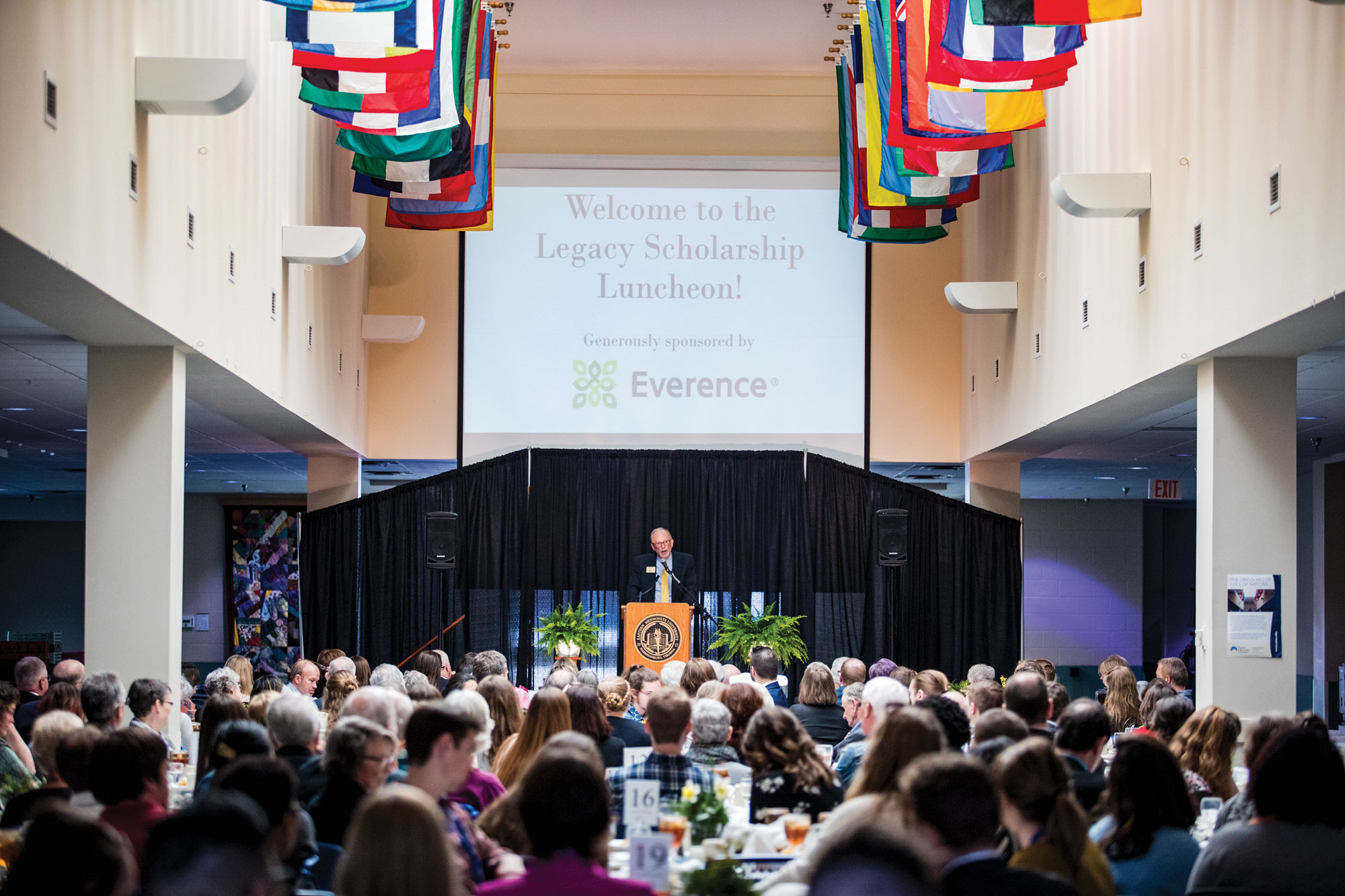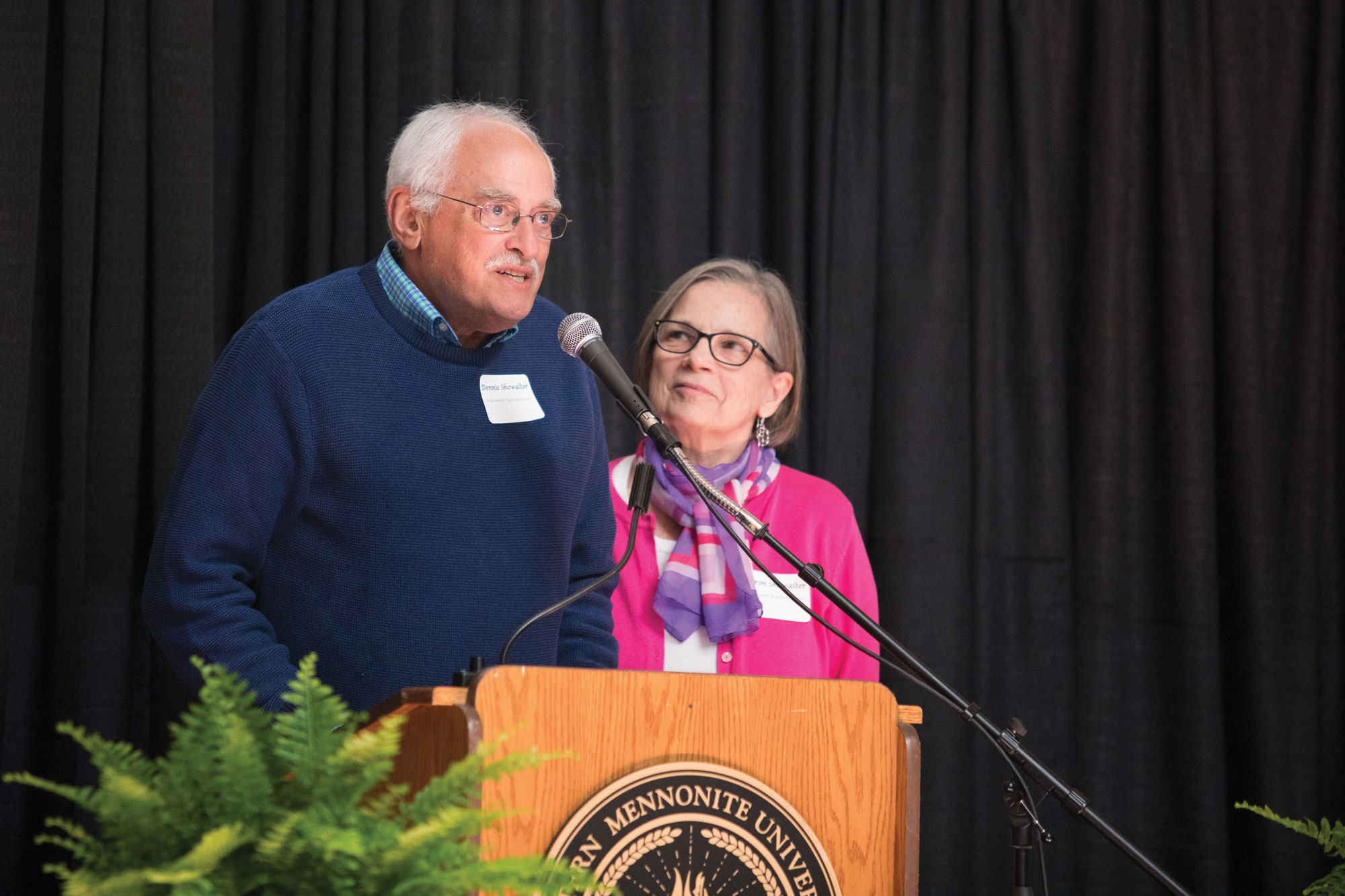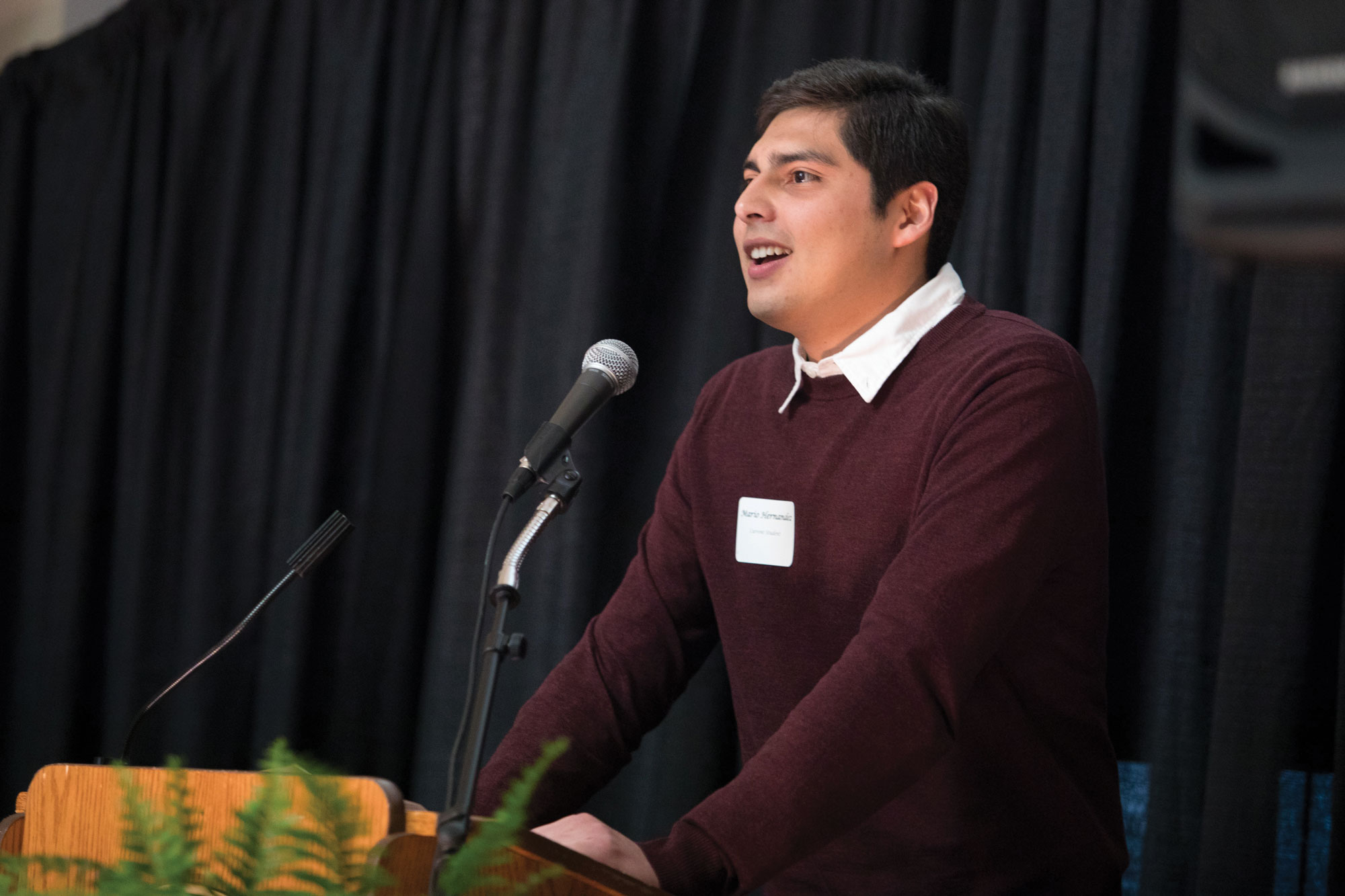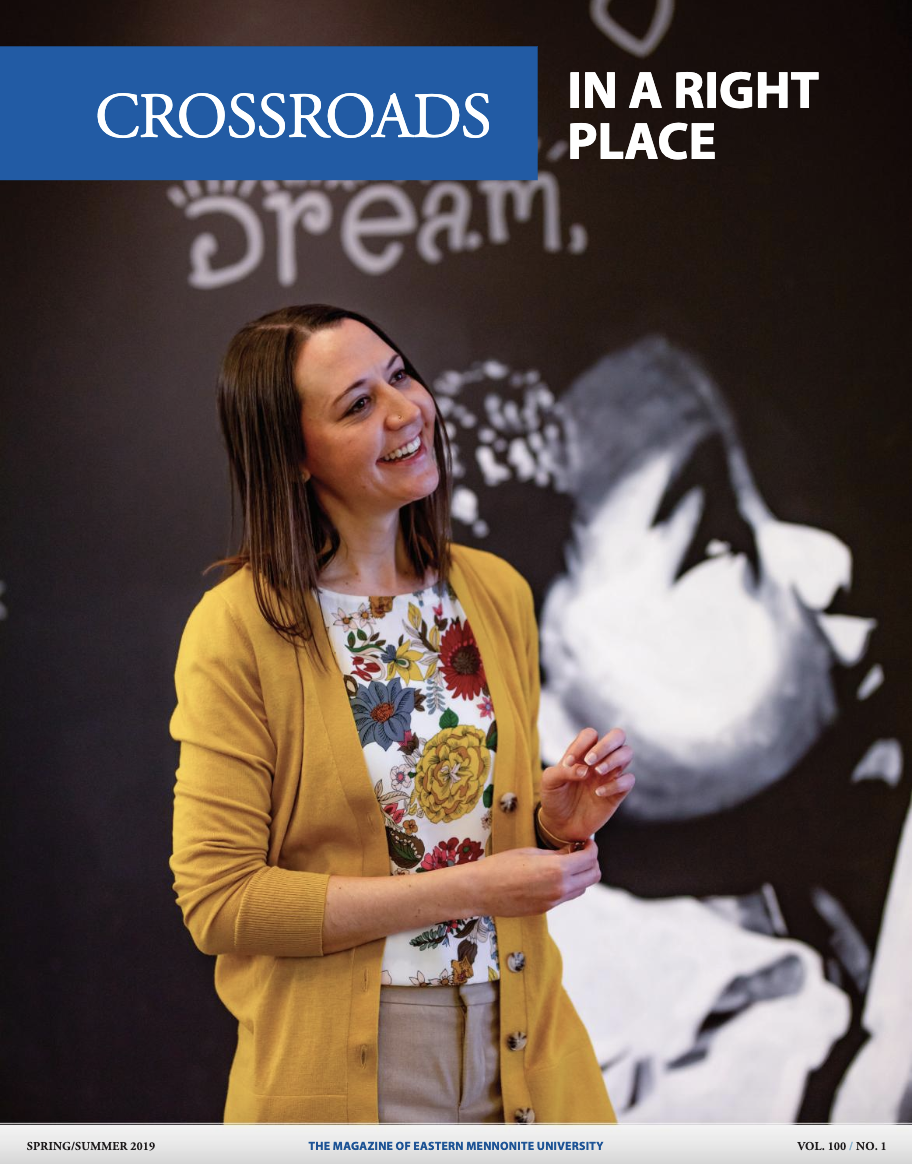
Kirk Shisler ’81, vice president for advancement, gives a welcome in the Hall of Nations to approximately 155 guests, including donors representing invested endowment contributions of $4.8 million of which the earnings generate perpetual annual support for student financial aid and programing.
BRINGING TOGETHER DONORS WITH STUDENTS who have benefited from their generosity was one goal of a busy year for Jasmine Hardesty, EMU’s director of development and planned giving.
“We wanted to thank our donors, demonstrate their charitable impact and give them an opportunity to meet with their student-recipients here on campus,” she said.
Those were the simple origins of the inaugural Legacy Scholarship Luncheon, held in the Hall of Nations midway through the spring semester. Approximately 73 donor households were invited to attend, representing invested contributions of $4.8 million to EMU’s endowment where the earnings generate a perpetual annual income stream of over $240,000 for student scholarships and academic programing in the areas of STEM, environmental sustainability and nursing. Members of the Board of Trustees, President’s Cabinet, former EMU presidents, academic chairs and prospective students were among the audience as well.
In coming years, the annual event will feature other areas of academic and endowment focus, based on EMU’s new three-school structure, Hardesty said.

Donors Dennis and Sharon Showalter, both 1973 graduates, speak about their affection for the EMU community and the transformative education that the university continues to offer to students in the 21st century.
The occasion symbolized the connection between those scholarship supporters who act as important change agents, “opening wide pathways for student access, affordability and achievement,” and their recipients, “talented, compassionate and globally engaged students,” who graduate each year to begin changing the world, said President Susan Schultz Huxman.
Among the speakers were Sharon and Dennis Showalter, both 1973 graduates, who continue to support and donate to EMU because it is “still a community where students receive a superior, individualized education with that personal touch,” Sharon said.
Senior Mario Hernandez talked more about that personal touch and “the concerted effort by the people who work here to get to know students.” He spoke of dinners in professors’ homes with their families, the opportunity to work on research projects, and even to drive a professor’s car on a field trip. “I was shaking the entire time,” he joked.

Mario Hernandez speaks to legacy luncheon attendees about the benefits of an EMU education. A biology and history double-major, Hernandez graduated in May with Cords of Distinction honors.
Among the 155 guests was Leah Lapp, recipient of the CT Assist Innovative Grant Fund. A junior biology and chemistry major who hopes to attend medical school, she was inspired by hearing of how Scott Yoder ’99, a physician assistant and co-founder of the medical staffing company CT Assist, had charted his career path.
Donor Jane Hooley enjoyed spending time with Claire Waidelich, a senior computer science major and two-time beneficiary of the Dr. David J. and Jane L. Hooley Endowed Scholarship Fund.
“I look forward to seeing her professional development after she graduates this spring,” Jane Hooley said. She and her husband David Hooley, a 1973 alumnus, discussed charities that interested him before his death in 2015. “Since he had always supported EMU, which has strong academic programs from a Christian and international perspective, we felt a scholarship would be of lasting benefit.”
For Hooley as well as Thomas Lapp ’84, the luncheon was “humbling and bittersweet.” Lapp and his wife Christy represented the N. LeRoy and Catherine A. Lapp Endowed Scholarship. His father, Dr. LeRoy Lapp, died in July 2018. Both parents, 1956 graduates, had strong ties to EMU. Catherine A. Lapp’s father John Harvey Alger was a member of the board of trustees for many years, and LeRoy Lapp was only able to attend college because of a patron’s financial generosity.
“This scholarship allowed him to pay it forward to assist other pre-med/science majors to achieve their career goals,” Lapp said, adding that he and his sister, Ann Swisher, are particularly struck by how EMU students “share the ‘servant’s heart’ that our parents exemplified.”
“EMU students are exposed to the Mennonite-emphasized beliefs of humility and servanthood, but they are also taught the skills needed to bravely face the issues in the world,” he said. “Those are important learnings and values our family shares.”
Support an Endowed Scholarship
Endowed scholarships provide critically important support to students attending EMU. In many cases, scholarship aid makes the difference between students choosing EMU or attending another university. Endowments also provide a financial foundation and annual stream of income that supports the university in perpetuity.
EMU’s current endowment of $32 million generates approximately $1.5 million of revenue per year. The portion earmarked by donors for scholarship aid is less than one-third of this total sum – making the available funds per student half or less compared to many peer institutions. To bring EMU’s scholarship aid to a more competitive level and ensure accessibility to the students who will be tomorrow’s leaders, it is essential that our alumni and friends join together to make an investment in EMU’s endowment.
Quick facts on EMU’s endowment:
- This past academic year, 218 active scholarships provided financial assistance to 206 students.
- You can endow a scholarship, department chair, or program (academic and extracurricular, such as athletics). To learn more, visit emu.edu/giving/endow
- Many majors, such as psychology, and some graduate programs do not yet have any direct scholarship support for their students.
- In 2018, EMU’s endowment, through the investment portfolio of MEA, had a net return (after fees) of 8.8% compared to its peer group average of 7.9%.
